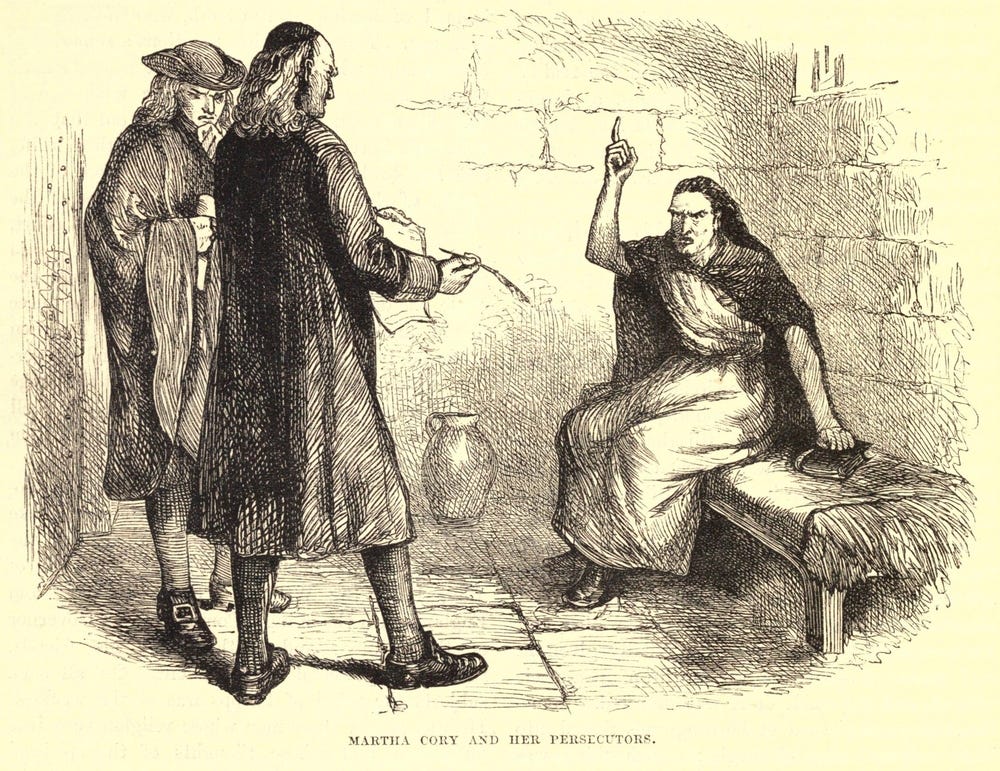E-Pluribus | October 13, 2022
The adults in the room need to be the adults in the room, science and equity and inclusion, and the New Puritans.
A round-up of the latest and best writing and musings on the rise of illiberalism in the public discourse:
Rob Henderson: Adults Today Care Too Much What Young People Think
While adults clearly do not have a monopoly on wisdom and are perfectly capable of screwing up the world royally, experience and age count for something. Writing at Persuasion, Rob Henderson argues that adults need to rise to the occasion and not shy away from setting the young people straight and let the chops fall where they may.
[. . .] Growing up, I don’t recall adults caring what kids thought. . .
The educated class seems to have gone too far in the other direction. They care too much what kids think. Poor kids have neglectful parents; rich kids have helicopter parents. For better or worse, culture is largely dictated by this educated class.
Older people in this category are now reluctant to say that they have accrued some useful knowledge to share and wisdom to impart. But there is a massive hunger among young people for this. Part of the reason they behave so erratically is to test where the line is, and to see what knowledge older people can share to steady their anxieties.
Older adults are reluctant to exert authority. They want the prestige that comes with having power, but they don’t want the responsibility of exerting it when challenged by a bunch of naive and pampered kids who have faced zero percent of real life and its attendant hardships.
Read it all.
Lawrence Krauss: Now Even Science Grants Must Bow to ‘Equity and Inclusion’
Science is science, but some science is apparently more worthy of grant money than others if it checks the appropriate boxes regarding social concerns. Lawrence Krauss writes at The Wall Street Journal that the demographics of researchers may trump the actual research in proposals submitted to the Department of Energy for funding.
Starting in fiscal 2023, which began Oct. 1, every proposal responding to a solicitation from the [Energy Department] Office of Science is required to include a PIER plan, which stands for Promoting Inclusive and Equitable Research, to “describe the activities and strategies of the applicant to promote equity and inclusion as an intrinsic element to advancing scientific excellence.” In the words of the announcement, “The complexity and detail of a PIER Plan is expected to increase with the size of the research team and the number of personnel to be supported.”
When I read this new requirement, I went back to the last grant proposal from our group—which involved exploring gravitational waves, the early universe, Higgs boson physics, neutrino cosmology, dark-matter detection, supersymmetry and black-hole physics. What does any of this have to do with diversity and inclusion? Nothing.
[. . .]
The extensive DEI bureaucracy at universities has already worked for decades to ensure that no STEM job announcements or hiring can be done without constant supervision to ensure that women and minorities are recruited. But given the strong wording of the new guidelines, existing programs may not be enough. This is worrisome, as university DEI boards have shown a willingness to torpedo job applications whose DEI component is insufficiently extensive or effusive. The new Energy Department review committees probably won’t behave differently.
Read the whole thing.
Noel Yaxley: The Cancel Cult
Puritans seem to be taking it on the chin these days, though more for their methods than their beliefs. At City Journal, Noel Yaxley reviews Andrew Doyle’s new book The New Puritans which examines how progressives often imitate the authoritarian impulses of a religious order they would otherwise eschew.
By religion, Doyle refers to a particular form of fundamentalism. He is careful to distinguish this group from the traditional notion of Puritanism. The New Puritans have nothing to do with post-Reformation England or the Protestant purification of Roman Catholicism. Nor does the New Puritanism have anything to do with abolishing sports on the Sabbath. It is an analogy Doyle uses to refer to an authoritarian ideology that seeks to engineer society in accordance with progressive beliefs.
Some, like Guardian columnist Owen Jones, still believe that cancel culture isn’t real. As they see it, despite brushes with controversy, artists like Dave Chappelle or J.K. Rowling are still performing comedy or publishing books. But Doyle provides an excellent riposte: the reason we know about these supposed counterexamples is precisely because they are famous. Many others “have neither the finances nor the influence to shield themselves from the depredations of the online mob”—like, say, Gillian Philip. The former children’s writer was dropped by her publishing house after she showed support for Rowling. She’s since retrained as a delivery driver, working in an industry she finds “a lot less misogynistic . . . than the world of children’s writing.”
Books on the culture wars abound. What sets Doyle’s apart is his tone. The accessible nature of his work is a testament to his former career as an English teacher. Gay, Labour-voting, and socially liberal, he is no reactionary. He doesn’t believe that racism, homophobia, and sexism have disappeared from society. What he does believe is that the ideology of today’s progressivism is at odds with genuine social progress.
Read it all here.
Around Twitter
Excerpts from a Jacob Mchangama thread on democracy and free speech:
Shadi Hamid and Zaid Jilani with a short back and forth on democracy, liberalism and Latin America:
Finally, Jonah Goldberg on Alex Jones apologists:











